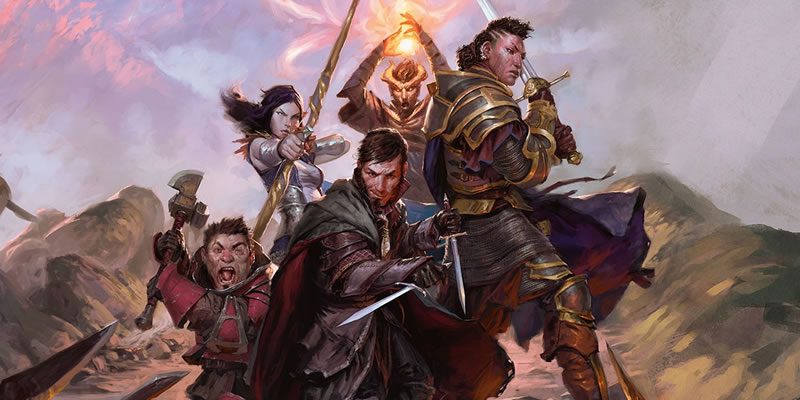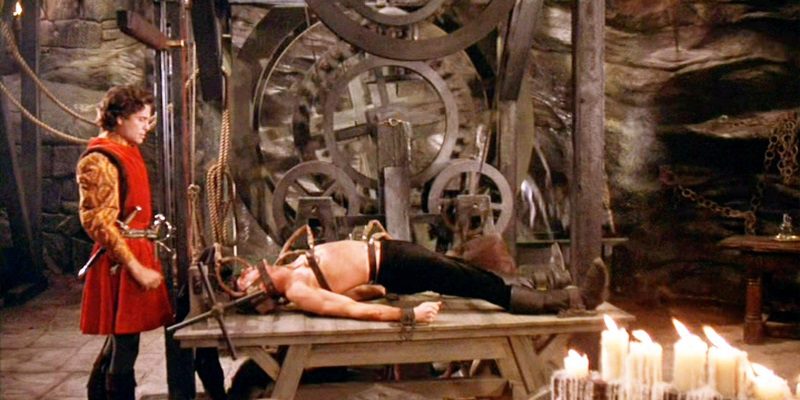Unearthed Arcana: Bard and Paladin Breakdown

Another Unearthed Arcana already? Honestly didn’t expect this gift, and it makes me suspect that there’s a big announcement coming for the first half of next year. In this round of subclasses, we currently have coverage for barbarian, bard, monk, paladin, sorcerer, and warlock. Not bad! But it’s hard to think that they wouldn’t round that out in the near future.
Barbarian and Monk | Sorcerer and Warlock | Bard and Paladin
College of Eloquence
If you can’t dazzle them with brilliance, baffle them with bullshit. – W.C. Fields.
The idea of bardic oratory rather than music goes back to 2e’s kits, if not earlier. This bard took rhetoric in college, back when rhetoric was part of the trivium of a liberal-arts education. Anyway – it fits with a Noble background, maybe in the style of a Roman patrician. Or a revolutionary firebrand, or a royal diplomat.
- Universal Speech lets you make yourself understood by one or more creatures, even if they don’t understand any form of language. You’re spending a Bardic Inspiration die to cover speak with animals and tongues and a few other things, and you have advantage on Charisma checks to influence them. It doesn’t give you any means of understanding them, though.
- Soothing Words lets you cast calm emotions a number of times equal to your Charisma modifier, without expending a spell slot, per long rest. This spell doesn’t see a lot of use in the games I’ve run or played, so I hadn’t even realized how useful it can be!
- Undeniable Logic at 6th level lets you target a creature with an argument or logical proposition. This might be daunting (dealing psychic damage and imposing disadvantage on the creature’s next save) or reassuring (healing them and granting advantage on the creature’s next save). The narrative link between those actions and their effects are a little less hand-in-glove than we usually see in WotC releases, but I’d get over it if the current form became official.
- Let’s be real, you’re probably not here for the splash of damage or healing. Advantage or disadvantage on the next saving throw could tilt a fight in your favor. A bonus action and Bardic Inspiration die as an extra cost when casting dominate person – you pay that cheerfully, every time.
- Infectious Inspiration at 14th level is a huge payoff for a bard, but it feels a bit like waiting too long for the whole reason you took this subclass. When a creature spends a die that you give it and fails, it keeps the die. When a creature expends a Bardic Inspiration die that you give it and the roll succeeds, you can spend a reaction to inspire another creature, without it costing you another Inspiration die. The way it works grants you a backup daily pool of Bardic Inspiration dice equal to your Cha modifier that reset on a long rest.
I love the theme of the class. In addition to the concepts I listed above, it could be great for characters modeled on Uhura (Universal Speech) or Spock (Undeniable Logic). I have some doubts about the mechanics – Infectious Inspiration, Undeniable Logic, and Universal Speech compete for Bardic Inspiration dice, without really expanding that pool. As a playtest version, I’m enthusiastic about what I see here.
Oath of Heroism
The concept of this Oath is that you have a Heroic Destiny given to you by the gods. The Oath’s benefits are a combination of your overwhelming self-confidence, your training, and the gods putting a thumb on the scales of chance. Paladins of Kord might find this particularly appealing. Personally, I have a hard time imagining hearing about that bright heroic destiny not being insufferable for the rest of the players and the GM. Well, okay, I know a few players who could play it over the top, for laughs.
Wait, the “gods” have a special destiny planned for you, and all you have to do is work out a lot? I get it now! You’re a babyface pro wrestler!
- Oath of Heroism Spells are mostly about physical enhancement of one form or another. In addition, you can talk to the gods and exert the force of your personal charisma to compel others. Conjure volley is a bit of an odd choice, but I assume it’s here because it sounds like something that a mythic hero would do.
- Channel Divinity offers two options. Peerless Athlete grants 10 minutes of advantage on Strength (Athletics) and Dexterity (Acrobatics) checks. Hercules uses this. Legendary Strike gives you 1 minute of a 19-20 crit range. Achilles or Cú Chulainn definitely use this.
- I like Peerless Athlete for giving you the Strength benefits for exploration/action hero sequences that a barbarian’s rage lacks.
- Legendary Strike is odd for being only a potential There will be a lot of times that you use this CD and get nothing out of it at all, even with several more rounds of landing your hits.
- It’s surprising to see a paladin subclass borrow some of the signature conceptual material from Champion fighters. I don’t know what to make of that.
- Mighty Deed at 7th level gives you a special effect when you land a crit or reduce an enemy to 0 hit points. A number of creatures equal to your Cha modifier either gain some temporary hit points or have to make a saving throw or be frightened for a round. You can use this feature up to once per round.
- This could trigger a whole heck of a lot in a fight, if your dice are hot. The repeated saves against frightened for up to 5 creatures seem like they’d be a hassle at the table. The temporary hit points could add up to a lot of avoided damage, but at least it’s relatively easy on mental load.
- Glorious Defense at 15th level gives you a new reaction. When a creature hits you with an attack, you can add your Cha modifier to your AC. If this causes the attack to miss, you can also make an attack against it. That’s shockingly powerful, though it depends a bit on how your DM announces NPC attack rolls. If the DM tells you the successful attack roll result, you’re spending the reaction without uncertainty. Anyway, I have a hard time believing this doesn’t need some toning down.
- Living Myth at 20th level lets you tap into the power of your own mythic nature, gaining incredible benefits. You gain advantage on all Charisma checks, you can convert one missed attack that you roll to a hit each round, and you can spend your reaction to… basically use Legendary Resistance. Even at just one 10-minute span of use per long rest, this feels just unbelievably powerful. The best I can say is that Glorious Defense and Living Myth compete for your reaction, but both of those features seem like they’d put the Heroism paladin head and shoulders above other party members in accuracy and resistance.
I could be talked around on the theme of this Oath, but I’m much firmer on the sense that Living Myth is way too much. Mighty Deed and Glorious Defense are also incredibly powerful, round over round. This feels like a sea change in the target power level of subclasses.
Conclusion
The particular ways this text emphasizes Charisma as a power stat are interesting. I’m intrigued with what book these might show up in. I’m so fixated on Oath of Heroism as a mythic Greek hero thing that I’m trying to sort the other subclasses of this batch into Greek myth, or maybe the Magic: the Gathering plane of Theros. (I don’t follow M:tG nearly closely enough to know if that idea works at all.)
I’m not sold on the mechanical balance of either subclass, finding Eloquence to be a bit underpowered and Heroism to be significantly overpowered. I could be wrong about either of these – it happens, don’t rub it in – but I’ll need to see some Deep Math to be convinced.
Owing to other commitments, I won’t be posting next week unless there’s another new UA release to cover.



